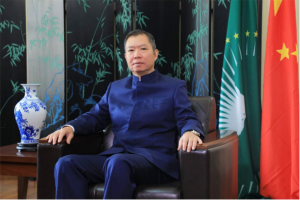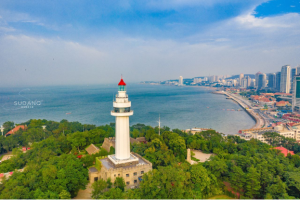The United States has warned Uganda to ensure free and fair elections.
Uganda is due to hold a general election in January of 2021. Opposition presidential candidates have accused security forces of brutally breaking up their rallies and beating their supporters.
In November, one of the candidates – Bobi Wine was arrested and charged for defying COVID-19 regulations governing mass gatherings.
Scores of people were killed and hundreds more injured as police and the military fought to quell the protests that followed Wine’s arrest.
“The United States is a longstanding partner of Uganda. We expect our partners to live up to their obligations to hold free and fair elections. We are paying close attention to the actions of individuals who seek to impede the ongoing democratic process,” said Mike Pompeo, the Secretary U.S. Department of State in a tweet Thursday evening.
Pompeo’s remarks came a day after Eliot Engel, the chairperson of the US House Committee on Foreign Affairs, demanded that several Ugandan security officials be sanctioned for what called a worsening human rights in the country.
“My desire to see a better human rights record in Uganda is firmly rooted in the country’s own constitution and legal code, which prevent torture and enshrine the right to freely assemble and express viewpoints that may not be in accordance with those of President Museveni,” wrote Engel.
Engel wants the Trump administration to invoke the Magnitsky act to punish General Peter Elwelu, the Commander of Land Forces, General James Birungi, Commander of the presidential protection force and General Abel Kandiho, the head of military intelligence.
Other are the deputy head of General Steven Sabiiti Muzeyi, and Colonel Chris Serunjogi Ddamulira, the head of crime intelligence in the police force.
Washington uses the Magnitsky legislation which came into force in 2012 to sanction foreign individuals who have committed human rights abuses or been involved in significant corruption.
In his December 9th, 2020 letter to Pompeo and Steven Mnuchin, the Secretary U.S. Department of the Treasury, Engel expresses concern over president, Yoweri Museveni’s “long track record of repressive behavior”.
“However, diplomatic rhetoric alone has had little impact on President Museveni’s behavior. Instead, he has further consolidated power while preventing the emergence of a viable democratic opposition,” the letter reads.
In power since 1986, Museveni is re-election in the January polls. In 2017, he changed the constitution to remove an age cap that would have prevented him from placing another bid at the presidency. He is 76.
He has called his opponents ‘enemies’ of Uganda for addressing huge rallies in the middle of a pandemic.
After initially suggesting that the elections would be postponed due to the coronavirus outbreak, Museveni backtracked in June telling the country’s election commission to accelerate the electoral road map.
In a May interview with a local TV station, he said it would be ‘madness’ to hold the vote if the virus was still around.
On Wednesday, Uganda’s health ministry recorded 1,119 virus cases, the country’s biggest single-day increase in infections ever.
Engel also cited the November 2016 massacre of over 100 civilians by security forces in Kasese, western Uganda torture and extra-judicial killings.
The United States is one of Uganda’s major donors, providing over $970 million per year in development and security assistance.
Washington has also run several training programs with the Ugandan military.
The Trump administration is scheduled to leave office (given Joe Biden’s victory is upheld) six days after Uganda’s election.
The Ethiopian Herald December 12/2020




